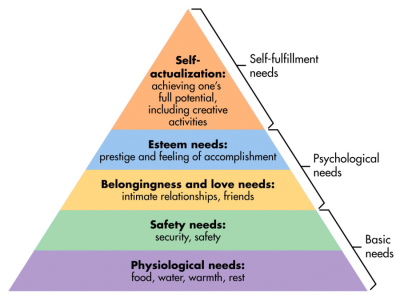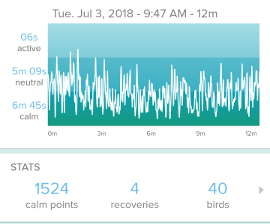Seattle's Blackberries Are Not a Commons
Aug. 10th, 2025 01:52 pmIt is mid-August, the very height of blackberry season in the Pacific Northwest, and with some rain earlier this week the blackberries in my neighborhood have plumped up and are undeniably delicious. All this week, I’ve seen kids and their parents at the communal blackberry bushes that grow along easements, drainage ditches, and jogging trails. There’s no organized effort; it’s just take what you can, and if you’re late to the party, tough luck.
I was picking blackberries and mentioned that to someone else who was there with two kids. “I think they call that the tragedy of the commons,” he said. I didn’t answer him, but it is not, it is absolutely not, because those blackberry plants, while they are communal, they are not a commons.
A commons has three important features. First, it is a local, naturally occurring feature of the environment. Second, the community is dependent upon that feature for their very survival. Third, there is a widespread communal understanding that the feature is fragile and can be exploited, cheated, or damaged, and there is an ongoing, vocal communal effort to ensure that nobody damages it or cheats others out of their share.
Himalayan blackberries may be local, and they may be a plant, but they’re an invasive species introduced about a century ago, not something the Pacific Northwest has had since time out of mind. Nobody in the Pacific Northwest is dependent upon them for food, and certainly not warmth, water, or shelter. The only communal decision being made about them is that they have to be torn out quickly and often whenever they’re a danger to local agriculture, infrastructure, or a child’s scratched arms. The route from my home to the local light rail into Seattle has a patch where the vines grow out over the bicycle path, and sometimes the bicyclists will do some guerrilla weeding to get rid of them.
“The Tragedy of the Commons” is a racist trope invented to sound scientific and to get into the peer-reviewed journals because the inventor of the trope, Garrett Hardin, wanted white people to embrace “a fundamental extension of morality.” That extension was not to bring more human beings into the fold of those who we must protect; it was to convince white people that white people had a superior moral claim to the future, and if there was an planetary disaster that limited the Earth’s capacity to keep all of humanity alive, white people must be prepared to kill everyone else.
There were no tragic commons. Commons, for centuries, allowed communities to subsist, to survive, often with a reasonable expectation of “enough” heat, food, water, and shelter, through careful communal management of local environmental features.
Commons don’t exist much anymore because they were inconvenient to kings and emperors; they made it hard to tax, because nobody knew how to value them. Wikipedia’s article about England’s Enclosure Laws describes some of the process by which “commons” were turned into “resources”; the latter could be described, accounted, owned, and taxed by the ever-reaching arm of monarchies and empires. But while they did exist, they were valuable, sustainable, well-managed, and treasured by the people who depended on them.
Seattle’s Himalayan blackberries definitely ain’t all that.
I was picking blackberries and mentioned that to someone else who was there with two kids. “I think they call that the tragedy of the commons,” he said. I didn’t answer him, but it is not, it is absolutely not, because those blackberry plants, while they are communal, they are not a commons.
A commons has three important features. First, it is a local, naturally occurring feature of the environment. Second, the community is dependent upon that feature for their very survival. Third, there is a widespread communal understanding that the feature is fragile and can be exploited, cheated, or damaged, and there is an ongoing, vocal communal effort to ensure that nobody damages it or cheats others out of their share.
Himalayan blackberries may be local, and they may be a plant, but they’re an invasive species introduced about a century ago, not something the Pacific Northwest has had since time out of mind. Nobody in the Pacific Northwest is dependent upon them for food, and certainly not warmth, water, or shelter. The only communal decision being made about them is that they have to be torn out quickly and often whenever they’re a danger to local agriculture, infrastructure, or a child’s scratched arms. The route from my home to the local light rail into Seattle has a patch where the vines grow out over the bicycle path, and sometimes the bicyclists will do some guerrilla weeding to get rid of them.
“The Tragedy of the Commons” is a racist trope invented to sound scientific and to get into the peer-reviewed journals because the inventor of the trope, Garrett Hardin, wanted white people to embrace “a fundamental extension of morality.” That extension was not to bring more human beings into the fold of those who we must protect; it was to convince white people that white people had a superior moral claim to the future, and if there was an planetary disaster that limited the Earth’s capacity to keep all of humanity alive, white people must be prepared to kill everyone else.
There were no tragic commons. Commons, for centuries, allowed communities to subsist, to survive, often with a reasonable expectation of “enough” heat, food, water, and shelter, through careful communal management of local environmental features.
Commons don’t exist much anymore because they were inconvenient to kings and emperors; they made it hard to tax, because nobody knew how to value them. Wikipedia’s article about England’s Enclosure Laws describes some of the process by which “commons” were turned into “resources”; the latter could be described, accounted, owned, and taxed by the ever-reaching arm of monarchies and empires. But while they did exist, they were valuable, sustainable, well-managed, and treasured by the people who depended on them.
Seattle’s Himalayan blackberries definitely ain’t all that.

